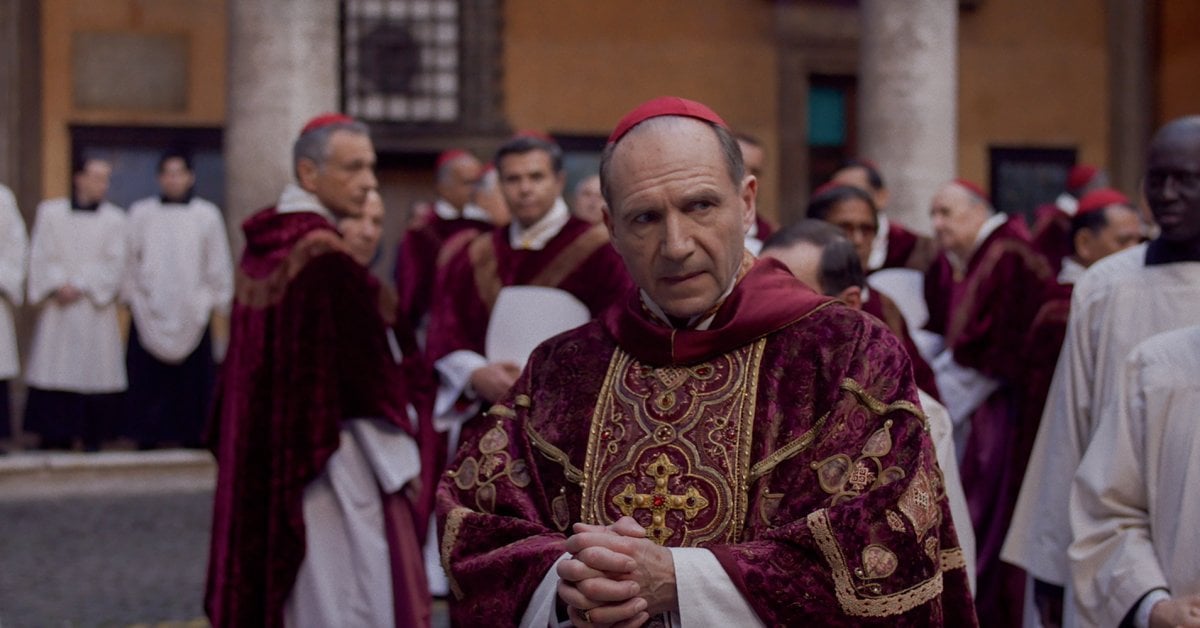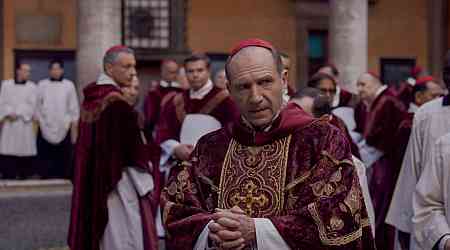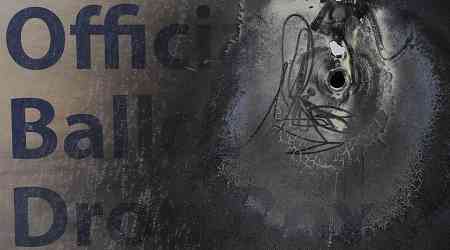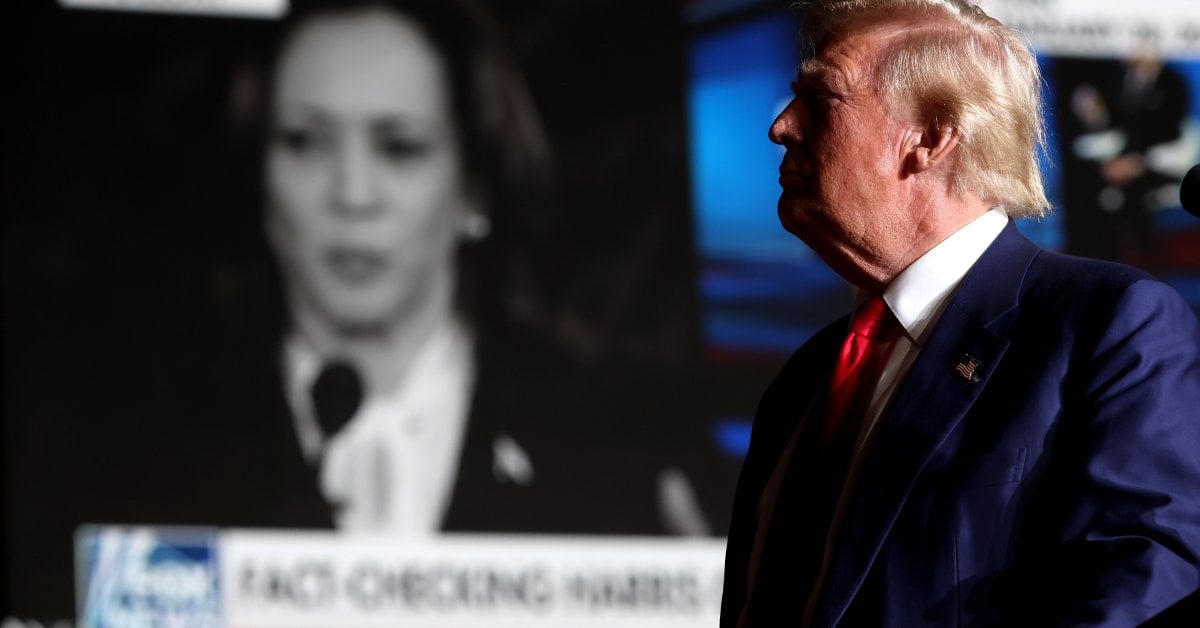
In October, Oscar season begins in earnest—that means some of the year’s finest movies have already rolled out. Here’s a selection of the month’s best, including one picture that will most certainly be among my top picks of the year.
The Outrun
Addiction-recovery stories serve a purpose in the real world, forging a point of connection between individuals who have gone through—or are going through—the hell of crawling their way out of addiction. But these stories don’t always work dramatically. A character hits rock bottom, then begins the slow climb out of the hole—and the slow climb is often the part that drags a movie down. Director Nora Fingscheidt mostly avoids that problem in The Outrun, adaptated from Amy Liptrot’s 2016 memoir about returning to her family’s farm in Orkney, and a life of solitude, as she figures out how to live without alcohol. Fingscheidt doesn’t so much construct a plot as let the story dictate its own rhythms. And Rona, the young woman at the center of this story is played, in a marvelously nuanced performance, by Saoirse Ronan. Ronan has the kind of face that always seems to be seeking the answer to a question; nothing is finite or definitive with her. As Rona, she takes her one day at a time one heartbeat at a time. The heartbeats, and the days, gradually pile up. And somehow, our pulse has synchronized with hers. [Read the full review.]
[time-brightcove not-tgx=”true”]Conclave
There’s something hilarious, and wonderful, about seeing actors you know strutting around a soundstage version of the Vatican while dressed in official cardinal garb. That’s the magic of Edward Berger’s papal drama Conclave, or at least part of it. Stanley Tucci wearing his red Zucchetto tilted jauntily toward the back of his head, ’30s newsboy-style? Sign me up! Ralph Fiennes indicating that the metaphorical burden on his shoulders is much, much greater than the actual weight of his scarlet capelet? I’m all over it! Conclave, the story of a huddle of cardinals scheming and counter-scheming as they attempt to choose a new pope, is great fun. It is also fiction. (The screenplay was adapted from Robert Harris’s 2016 novel of the same name.) But even as it captures the allure of Vatican style—the swingy gold ecclesiastical necklaces, those soft red leather slippers—it makes a more overarching serious point: the Catholic Church must change, or risk becoming as desiccated as the bones of a long-dead saint. [Read the full review.]
The Apprentice
Documentaries aside, few American filmmakers will attempt making any sort of overt political statement these days. That’s why Danish-Iranian filmmaker Ali Abbasi’s The Apprentice is arriving at just the right time. This is a fascinating and thoughtful picture, one that doesn’t need to resort to extremes to paint an accurate picture of what America and the world are up against right now, in terms of one particular past and possibly future president. Sebastian Stan plays 1970s-and-’80s-era Donald Trump, at the time a socially clumsy, insecure underling in his bullying father’s real estate business. Jeremy Strong plays Roy Cohn, the cutthroat lawyer who’d served as Senator Joe McCarthy’s chief counsel during the Army-McCarthy hearings. Cohn, a closeted gay man who would ultimately die of AIDS, takes the young Trump under his wing, instilling in him three rules for success: Attack, attack, attack; admit nothing, deny everything; and always claim victory—never acknowledge defeat. The rest isn’t just history—it’s the story of our politically fractured present. Trump is said to have been furious about the film, vowing legal action which has yet to materialize. The Apprentice is actually a rather quiet act of resistance, and still, even in its restraint, it’s viewed as dangerous. That’s where we’re at today, a place where subtleties aren’t easily grasped. But everyone knows the meaning of attack, attack, attack. [Read the full review.]
Anora
There are few filmmakers as open-hearted, as stone-soup inventive, as Sean Baker is. With Anora, he invites us into the world of a young sex worker from Brooklyn named Ani (played by the extraordinary Mikey Madison)—she doesn’t like her full name, which is the same as the movie’s title, though by the end, it’s the only name regal enough to suit her tender, fighting spirit. Ani works in a Manhattan strip club; one night her boss summons her to meet with a client who has asked specifically for a Russian-speaker. Because she’s Uzbek-American and used to speak Russian with her grandmother, she’s got the qualifications. And so Ani meets Ivan (Mark Eydelshteyn), the son of a Russian oligarch, a funny, endearing kid—he claims to be 21, but you doubt it—who’s as playful as a wolf pup and who tosses hundred-dollar bills around like play money. Baker at first gives us a whirlwind, screwball romance; then, after spinning us around a few times, leads us to one of those great movie endings that’s both staggering and gentle. In movies like Tangerine and The Florida Project, Baker has always shown a knack for doing a lot with a little. But with Anora, so playful yet so emotionally fine-grained, he maybe does the most. It’s his best movie yet. [Read the full review.]































